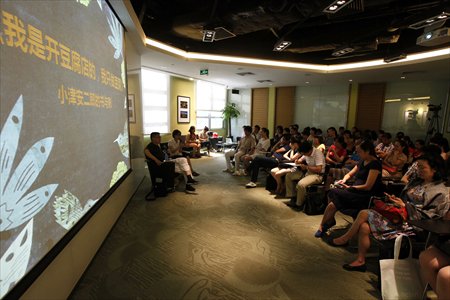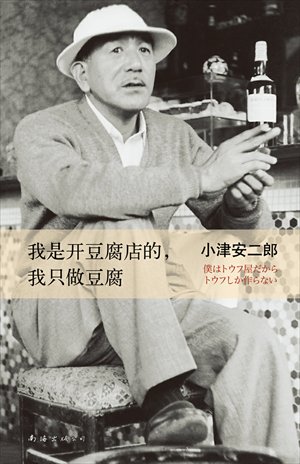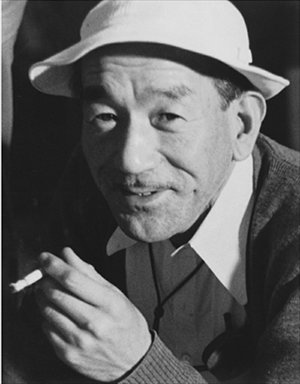Ozu on Filmmaking
"Modern filmmaking technology has made it possible to make or remake old stories into fantastic films, for instance, The Lord of the Rings. But when you look at the black-and-white films of Yasujiro Ozu (1903-1963), which were made 50 or 60 years ago, you would never feel it necessary to remake his films with modern technology, or even to transform them into color films, as technology could not improve on Ozu's original version," said Beijing-based literary critic Wang Jinwen, also known as Zhi'an by his pen name, at a recent lecture in Shanghai.
Zhi'an is not the only one to give the Japanese director such high acclaim. In 2000, renowned Japanese cinema magazine Kinema Junpo listed Ozu as Japan's second-best director of the 20th century, and in 2002, the British Film Institute's Sight & Sound magazine ranked him as one of the 10 greatest directors in film history.

People attending the lecture held recently to discuss Yasujiro Ozu's essays and films Photo: Cai Xianmin/GT
To commemorate the 110th anniversary of Ozu's birth, Beijing-based Thinkingdom Publishing House recently published an authorized Chinese version of a collection of essays by Ozu.
Entitled I Run a Tofu Shop, and I Only Make Tofu, the original book was published in Japan in 2010 and includes not only his ideas about filmmaking but also his experience as a soldier in China during the War of Resistance against Japanese Aggression (1937-45).
Slice-of-life director
"I think whether a film is good or bad depends on the impression it leaves. It seems that many people believe that only sensational scenes or occasional killings qualify as a drama, but in my opinion, they're not dramas, just accidental incidences," Ozu observed in the newly published book.
Over his career, Ozu spent most of his energy on films that focus on family stories, especially the bonds between parents and their children. Tokyo Story is regarded as the most representative example, and follows an old couple who travel from Onomichi to Tokyo to see their children and are baffled by the different lifestyles between them.
Zhi'an calls Ozu "a film director of normal body temperature" as most of his films follow ordinary stories of daily life. Zhi'an's opinion was echoed by Shanghai-based film critic Mao Jian, who joined Zhi'an in giving a talk at the Irish Centre on July 13.
"His works are never sensational, never the kind that produce a temperature rise in audiences. That's the kind of director I look for when I've experienced the hardships and sadness of life, because he will tell you gently with his films that this is life, ordinary, simple life," said Mao.
However, although Ozu is still celebrated decades after his death, he was heavily criticized by Japanese filmmakers such as Shohei Imamura during his later years. Equinox Flower was made in 1958, when Japanese society was going through a turbulent period during the renegotiation of the Treaty of Mutual Cooperation and Security with the US.

The Chinese version of Yasujiro Ozu's essay collection I Run a Tofu Shop, and I Only Make Tofu Photos: Courtesy of Thinkingdom Media Group
"People say that Japan was undergoing such a serious event and Ozu was still depicting the intact life of a middle-class family, and that although it's perfectly made, what did that matter to the furious Japanese people at that time," said Zhi'an, noting that the tidy and peaceful scenes captured by the well-known director are still considered controversial.
"I run a tofu shop and I only make tofu," Ozu remarked in one of his essays when he was asked to make films about different subject matter. "If a person who makes tofu changes to make curry rice or deep fried pork chops, it won't taste good."
Breaking the rules
Also included in the book are Ozu's ideas about the grammar of filmmaking. The auteur believed making films is about an absence of grammar.
Conventional filmmaking rules were frequently broken in Ozu's films. For instance, when two people are filmed in conversation, the camera usually shoots them from the same side facing each other to avoid disorienting the audience; however, Ozu liked to film his actors head-on.
Another distinctive aspect of Ozu's style was his attitude towards close-ups and his trademark use of low camera angles. For instance, while many directors favor close-ups when they want to emphasize a character's sadness, Ozu chose a medium or long shot.
As for his low placement of cameras, Ozu explains in the book that the reason was simply convenience during shooting, which freed him from cleaning the messy floor.
"I think it's a very interesting book. It may not reveal the actual truth, which was possibly Ozu's intention as he didn't want the audience to see filmmaking as so complicated," said Zhi'an.

Yasujiro Ozu
War experience
Two of the five chapters in the book are about the director's experience during the War of Resistance against Japanese Aggression, when Ozu was a Japanese soldier who fought in the Chinese mainland between 1937 and 1939.
"I've had precious experiences as I participated in the war in person. And if I have the chance to go back alive, I want to make realistic films based on my experiences," Ozu wrote.
According to Zhi'an, from Ozu's first film after the war, Record of a Tenement Gentleman, to his last film, An Autumn Afternoon, war became a permanent element in his films.
"The chapters about his war experience remain the same as they were written, and they allow readers to learn about Ozu and the war from his perspective," added Zhi'an.